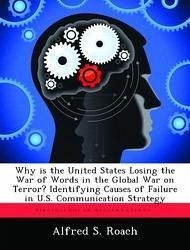The U.S. (U.S.) Government's ability to influence friends and foes around the world has immense strategic implications that can either enhance U.S. strategic objectives or contribute to a loss of U.S. power. Nine years after the beginning of the Global War on Terror, America's credibility is at an all time low in the eyes of world opinion. This is largely due to the loss of effectiveness of U.S. information management. This paper proposes that the U.S. Government's failure to communicate its strategic message is due to three causative factors-poorly defined policy, no central agency to dictate and manage messages, and an outdated message model. The author analyzes each of these factors and proposes alternatives. Additionally, in order to reinforce this analysis this paper demonstrates a comparison of failed U.S. methodologies to successful Jihadi Extremist methodologies. The author posits that Jihadi extremist communications methodologies are succeeding because they are easily recognizable, managed by a central organization, and rely on the most contemporary media models to target specific audiences. The author concludes that unless the U.S. defines a recognizable message, establishes a cabinet-level information agency, and updates its messaging model, it will never be able to counter effectively the rhetoric of Jihadi extremists.
Hinweis: Dieser Artikel kann nur an eine deutsche Lieferadresse ausgeliefert werden.
Hinweis: Dieser Artikel kann nur an eine deutsche Lieferadresse ausgeliefert werden.








